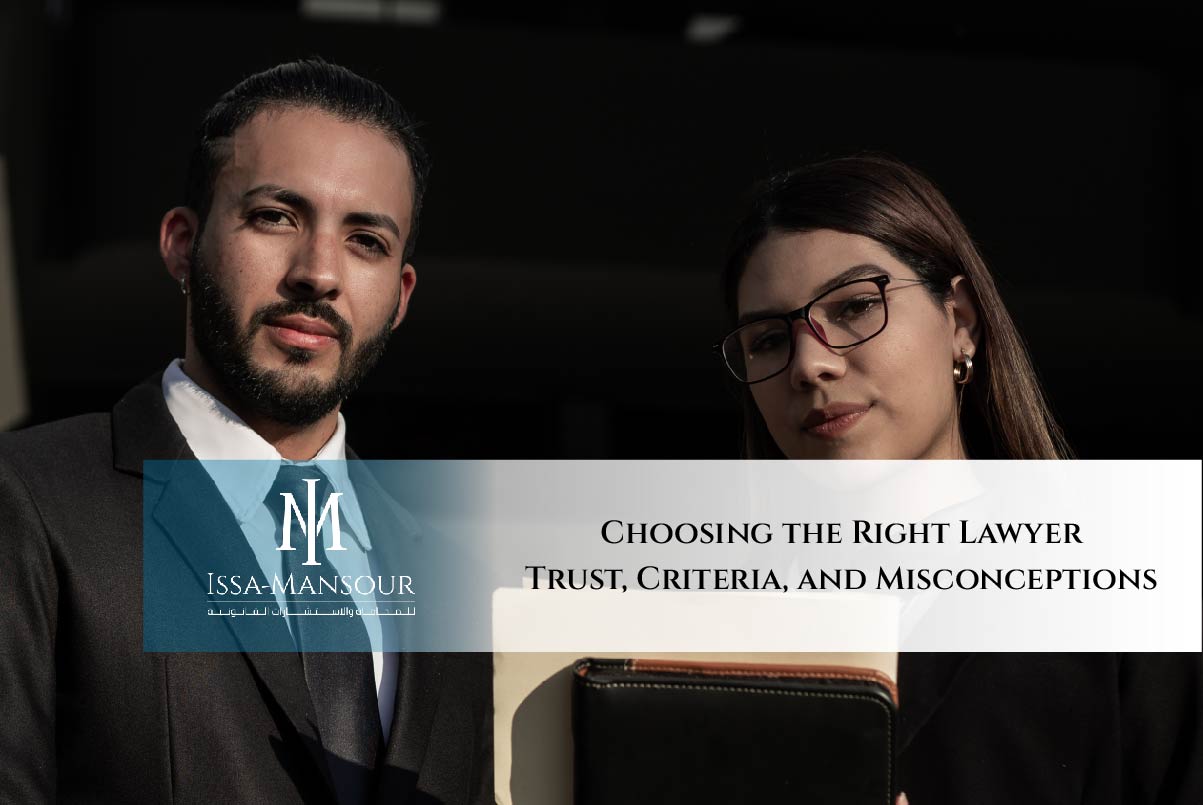In our previous article, “Client Trust and the Lawyer’s Rights,” we emphasized that trust is the cornerstone of the lawyer-client relationship. But trust must be mutual, and it begins with one crucial decision: How do clients choose their lawyer? What criteria matter most?
Naturally, legal expertise and credibility top the list. Clients seek lawyers who are not only knowledgeable in the law but who also conduct themselves with professionalism, courtesy, and clarity. The relationship must be built on respect, transparency, and a shared understanding of the matter at hand.
But trust does not arise in a vacuum. It develops over time, through meaningful interactions and the lawyer’s ability to communicate clearly, act decisively, and provide grounded legal guidance.
Legal Specialization Matters
One of the primary reasons clients favor certain lawyers over others is specialization. Many legal practitioners focus their work on specific domains: criminal law, commercial litigation, banking and finance, personal status, or international arbitration, for instance. A client facing a sensitive family matter may choose a personal status lawyer over a skilled but general practitioner.
This is both logical and justified; clients are more confident in professionals who understand the nuances of their particular legal challenge.
The Role of Image and Influence
It would be naive to ignore the influence of appearances and social perception in the decision-making process. Some clients, especially in criminal or high-stakes matters, may be drawn to lawyers with visible social status; those who drive luxury cars, maintain high-profile offices, or appear connected and influential. Unfortunately, this sometimes comes at the expense of actual legal competence.
In other cases, large companies or high-net-worth individuals may prefer renowned law firms, not only for their reputation but also for the institutional trust that these names carry, regardless of the often higher fees.
Meanwhile, many clients continue to rely on personal relationships: hiring lawyers they know personally, or who are recommended by trusted acquaintances. This remains one of the most powerful motivators in legal selection.
Comfort, Communication, and Continuity
Beyond credentials, specialization, or image, a key factor that often determines whether a client retains a lawyer is comfort. How the lawyer listens, explains the legal context, proposes solutions, and interacts; all of this builds emotional trust that evolves into professional confidence.
Once established, trust becomes the foundation of the entire legal relationship.
A Clarification on Expectations
Finally, it’s worth repeating a legal principle often misunderstood: a lawyer’s obligation is one of means, not of result. That is, the lawyer is not obliged to win every case, but they are required to use their full legal knowledge, diligence, and experience in defending their client’s rights.
If the outcome is unfavorable, that does not diminish the lawyer’s effort or justify withholding their agreed-upon fees. The integrity of the relationship is reflected precisely in these moments when trust continues even in loss.
Closing Thought:
Clients who choose lawyers based on both legal competence and interpersonal connection are more likely to build lasting, effective partnerships. And lawyers who combine professionalism, knowledge, and a genuine human touch are more likely to earn, and keep that trust.

